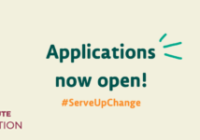By Rick Clerici, C. Ht., of Clear Mind Systems
Infrastructure always seems to be a neglected necessity. Bridges, power grids, and water systems fall into gradual disrepair over time and are routinely overlooked until a disaster attracts our attention. And even though we may respond immediately, our efforts are often too late. Thankfully, the opportunity is there to prevent future failings. Likewise, we can think of sleep as a human infrastructure, the importance of which should not be overlooked or neglected.
Let’s define sleep: Sleep is the natural, periodic suspension of consciousness necessary to regulate, repair, and restore physical, emotional, and cognitive health. Sleep is our internal system of highways, bridges, and power grids.
Did you know that our sleep state is actually more active than our waking state?
While we are sleeping, the brain and body are making up for lost time. Systems are busy repairing, regenerating, healing, and “shoring up” every aspect of our physiology that is otherwise engaged during our conscious waking hours.
Evidence suggests that our ancient ancestors who were devoid of modern science held sleep in greater esteem than today’s scientifically educated humans. So, when we speak of “fixing” our broken sleep, we are speaking about more than simply improving personal habits. We’re alluding to the need to shift our viewpoint and resulting behaviors to return to what our ancestors knew.
The recommended amount of sleep for adults is eight to nine hours. Take steps today to change your own understanding and perspective of sleep in order to manage and maintain your body’s key “infrastructure.”
I recommend following the “Eight to Get Eight” list, eight simple steps you can do today to get your eight hours of quality sleep:
- Make the bedroom a simple place for sleep and intimacy, free of work and technology.
- Keep as regular of a sleep schedule as possible.
- Wake up in a dark room and then get as much light as possible.
- If you nap in the afternoon keep it to 20 or 30 minutes.
- Protect the last 60 to 90 minutes before sleep from light and screens.
- Try auditory entertainment like audible books, podcasts, or soft music in that dark period before bed.
- Make the bedroom as dark as possible and use a sleep mask if you can’t eliminate all light.
- Keep the room cool, between 62 to 65 degrees.
It may seem strange, but the first sector to acknowledge the great epidemic of insufficient sleep has turned out to be corporations. Knowing that insufficient sleep costs businesses $136 billion per year in lost productivity, the corporate world has followed the science and numbers and placed its resources where they will make a difference. The corporate world may very well lead the rest of the world in awakening a respect for sleep by providing the education and treatment resources necessary. At Clear Mind Systems, we work with employees at over 100 corporations, universities, and hospitals to improve employees’ sleep.
Epidemics like type II diabetes, obesity, anxiety, depression, and learning disorders all have at their core an association with chronic insufficient sleep. At a time when we are realizing more than ever the value and precarious nature of good health, we may finally be more willing to take better care of our most essential human infrastructure: sleep.
Armed with knowledge, enthusiasm, and good solid rest, we can each help rebuild the tattered and neglected infrastructure of sleep that has plagued our planet.













This Post Has One Comment